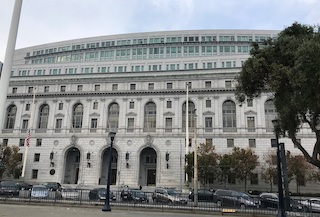In 2007, in Contra Costa County Superior Court, William Davenport was charged in an information with murder (Penal Code § 187), alleging he committed the murder with malice aforethought. The information included an enhancement for personal and intentional use of a firearm causing great bodily injury and death (Penal Code §§ 12022.53(b)-(d).
Davenport’s counsel negotiated a plea bargain in which Davenport pled no contest to second degree murder and personal use of a firearm under Penal Code § 12022.5(a). The judge sentenced him to fifteen years to life for second degree murder consecutive to a term of three years for the 12022.5(a) enhancement.
Eleven years later, in 2018, the Legislature enacted Senate Bill 1437, which amended Penal Code § 189 to limit liability under a felony-murder or natural and probable consequences doctrine theory to a person who is the actual killer, who has the intent to kill, or a is a major participant who acts with reckless indifference to human life.
The bill also established a procedure under Penal Code § 1170.95 for eligible defendants who were prosecuted and convicted under a felony-murder theory or the natural and probable consequences doctrine who would not be found guilty under the new law to apply for resentencing.
In February, 2019, Davenport filed a petition for resentencing under Penal Code § 1170.95, wherein he alleged that: (1) he was prosecuted under a felony-murder theory or the natural and probable consequences doctrine; (2) that he pled no contest to second degree murder in lieu of going to trial because he believed he could have been convicted at trial of first degree murder under the felony murder rule or the natural and probable consequences doctrine; and that (3) he could not now be convicted of first or second degree murder under section 188, as revised.
In June 2019, Judge Theresa J. Caneva summarily denied the petition for failure to state a prima facie case for relief.
Davenport appealed the order to the First Appellate District Court in San Francisco. The prosecution conceded that Judge Canepa was mistaken and that Davenport’s petition was facially sufficient. The First Appellate District then remanded the case for further proceedings.
On remand, Judge Canepa summarily denied the petition again, concluding that Davenport was ineligible for relief as a matter of law because: (1) Davenport admitted to the firearm enhancement allegation; and (2) facts taken from the preliminary hearing transcript showed Davenport had approached a car in which his former girlfriend was sitting with the victim, her new boyfriend, and killed the victim by shooting him at close range.
 Court of Appeal First Appellate District San Francisco
Court of Appeal First Appellate District San Francisco
Davenport appealed again to the First Appellate District, arguing that Judge Canepa improperly relied upon and considered the preliminary transcript when Davenport never stipulated to it as the factual basis for his plea.
People v. Cooper (2020) 54 Cal. App. 5th 106 (judge engaged in “impermissible factfinding” by accepting the truth of the preliminary hearing transcript because the factual showing at a preliminary hearing is only for establishing probable cause to believe defendant committed a felony, which is far different than those facts determined by the trier of fact to establish guilty beyond a reasonable doubt). He pointed out that the preliminary hearing transcript was not part of the record of his conviction.
The First Appellate District again agreed with Davenport that Judge Canepa had again erred by not affording Davenport an evidentiary hearing as is the next step in a 1437 petition.
The First District pointed out that a preliminary hearing transcript can be part of the record of conviction, but in this case it was not.
The First District again reversed the order denying Davenport’s section 1170.95 petition and remanded the case with directions to issue an order to show cause and hold an evidentiary hearing on Davenport’s petition.
We present this summary to show how many judges are unclear in what they may and may not consider and when in ruling upon a petition for resentencing under Senate Bill 1437.
The citation for the First Appellate District Court ruling discussed above is People v. William Davenport (1st App. Dist., 2021) 71 Cal. App. 5th 476, 286 Cal. Rptr. 3d 325.
For more information about what a judge may or may not consider in ruling on a Petition for Resentencing under Penal Code § 1170.95 (SB 1437), please click on the following articles:
 Court of Appeal First Appellate District San Francisco
Court of Appeal First Appellate District San Francisco